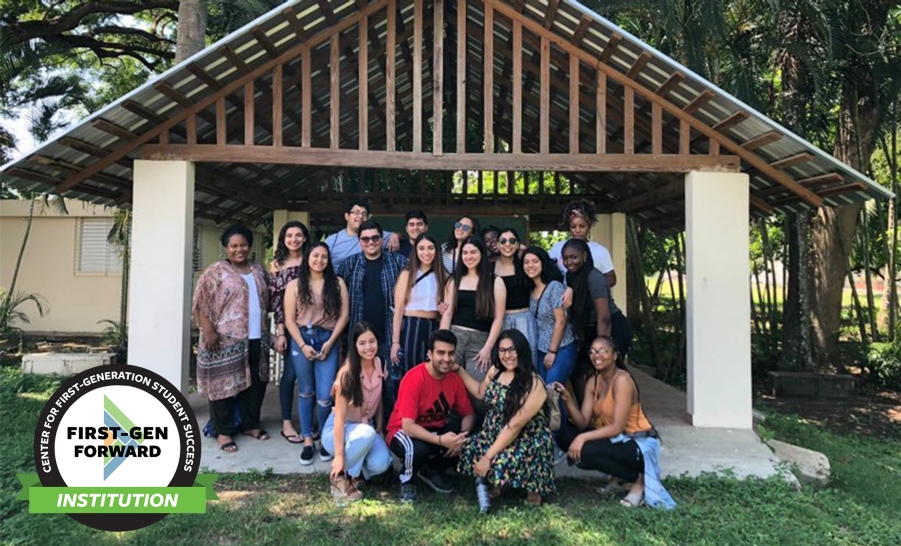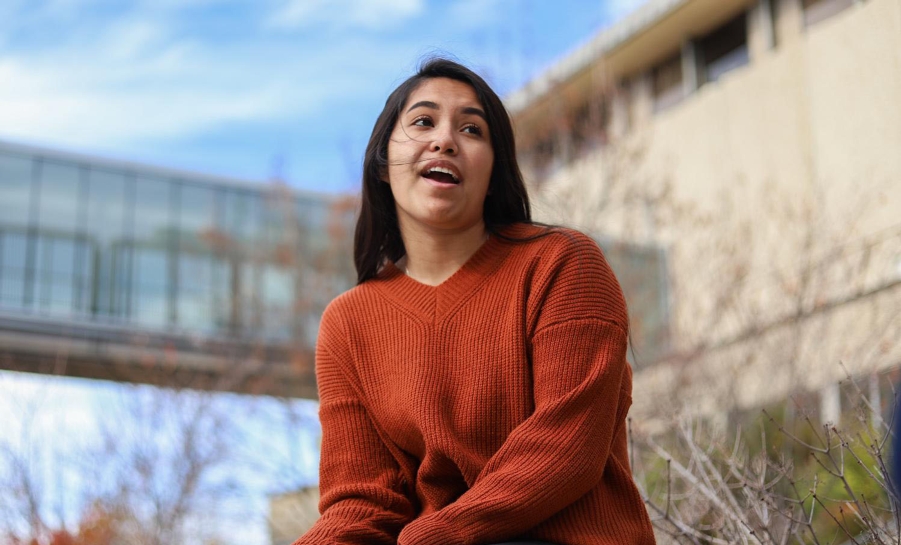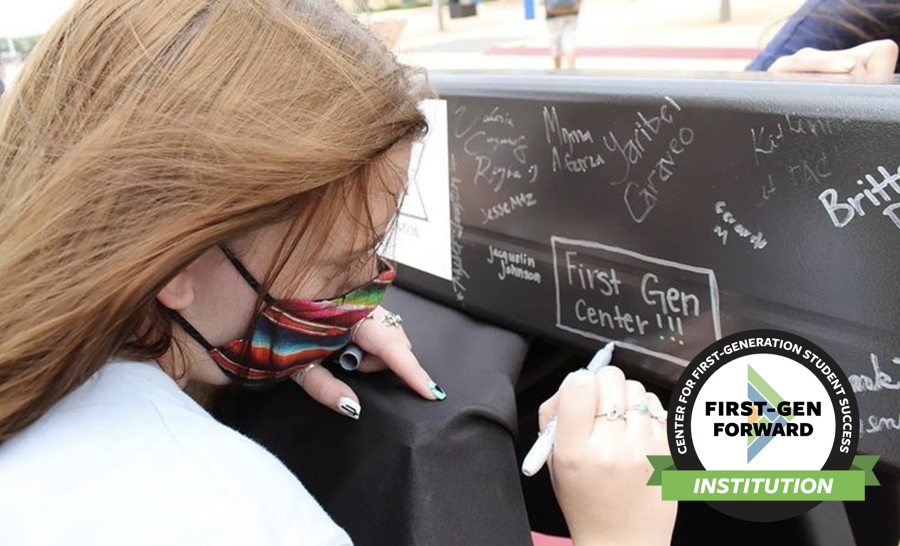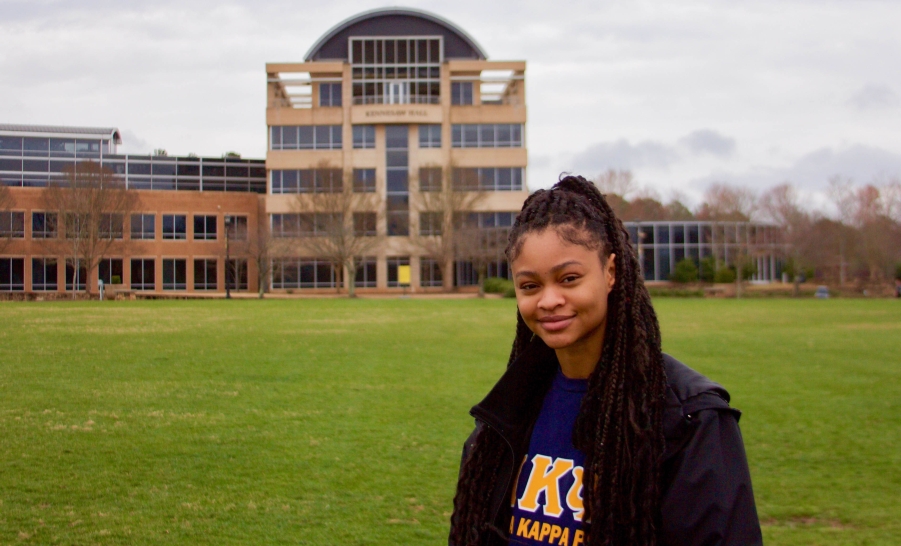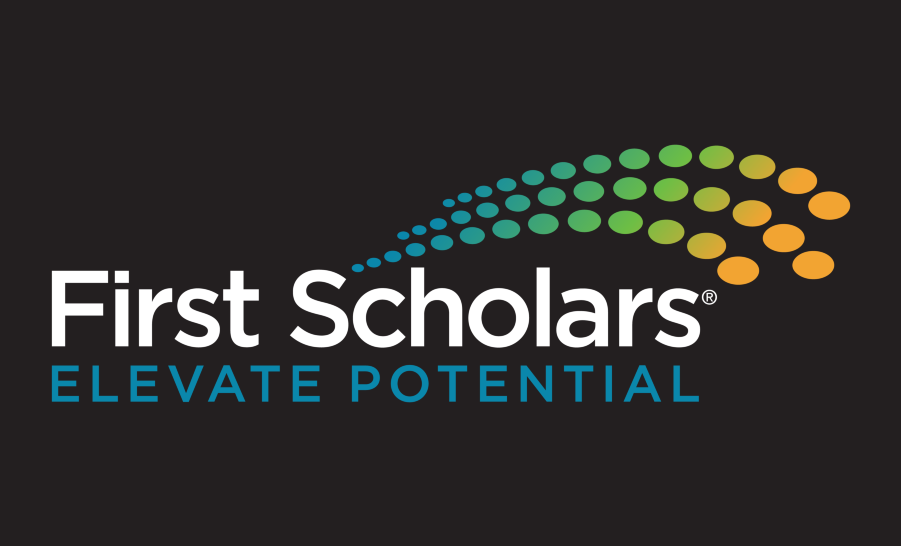Intersectional identities of First-generation students: A Centerpiece in Our Work
Kinyata Adams Brown, M.A., Winthrop University / FirstGen Forward / March 10, 2021
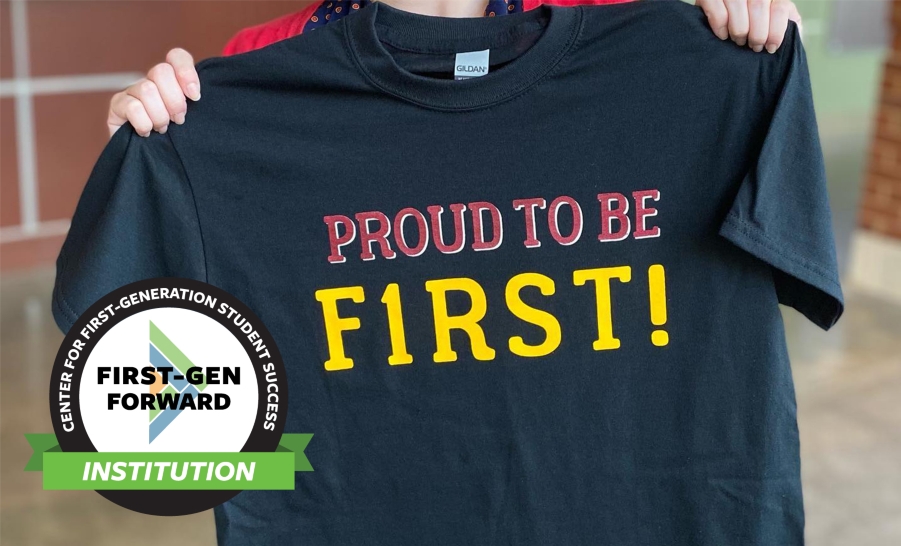
In 2020, we were excited to receive the news that Winthrop University was selected as a First-gen Forward Institution. Before being recognized, great work was already happening within the TRiO Achievers and the McNair Scholars Programs. Receiving this designation has given us an opportunity to dedicate time, strategy, and vision to building first-generation student initiatives that will enhance students’ success during their time at Winthrop.
In the early stages of our work, the First-generation Student Working Group became increasingly cognizant of the intersectionality of our first-generation students. Our team has embraced this knowledge and made these intersections a focus of our collaborative work. We have also found value in celebrating and connecting our first-gen students, faculty, and staff. Below are some of the ways we have done this.
Embracing the Intersectionality and Experiences of Our Students
First-generation College Celebration Week was the ideal time to remind the Winthrop community of the varied identities of our first-generation students. The Narrative Project was conceived to provide insight into how first-generation students perceive themselves within the Winthrop community. Through our one-on-one conversations with the students interviewed, we learned about the ways in which students’ distinct identities inform and impact their experience as first-generation students at Winthrop University. The interviews also affirmed the similarities and commonalities among many first-generation students, which led to focused, intentional ways to support first-gen students from a variety of backgrounds. These recommendations included assistance with the FAFSA form, exposure to resources in the summer prior to the students’ first semester on campus, and enhanced orientation experiences. The information collected from The Narrative Project was shared in the form of social media spotlights. Particular care was exercised in selecting first-generation students belonging to multiple identities. Whether our first-gen students are Black men from low-income families, international students, actively serving in the military, or children of immigrants, we wanted to be sure that they felt seen and supported in intentional, mindful ways.
Being a first-gen student means pushing for more than what my family before me did. it means achieving a goal that I never thought was possible, and it means being able to support myself in the future as a direct result of going to college.
Celebrating First-generation Students, Faculty, and Staff
The COVID-19 pandemic did not stop Winthrop’s inaugural First-generation College Celebration Week, which took place November 4th through November 11th. We offered occasions to celebrate and show support for our first-gen students, as well as resources to better understand the first-generation student experience. First-gen students, faculty, staff, and alumni received first-gen swag buttons and T-shirts. We used social media to highlight the diversity of our first-generation students. Also via social media, several first-generation graduates from the faculty, staff, and administration shared their college success tips with first-gen students. A first-generation student panel allowed us to hear the students’ experience in their own words. Regional and national training opportunities were leveraged to educate faculty and staff members about the first-gen student experience and share resources and tools for a more first-gen inclusive experience. The week concluded with a first-gen community photo and networking lunch.
Connecting First-generation Students to First-generation Faculty and Staff Members
We have made significant progress in developing a directory of first-generation administrators, faculty, and staff members. It is important for students to see the wide network of first-gen graduates that can relate to being the “first.” This connection is impactful to students who may experience imposter syndrome and feel out of place or as if they do not deserve to be at Winthrop. It reaffirms a sense of belonging to be in the company of those who have had a similar collegiate journey.
For more information on Winthrop University’s approach, please visit their website here.

